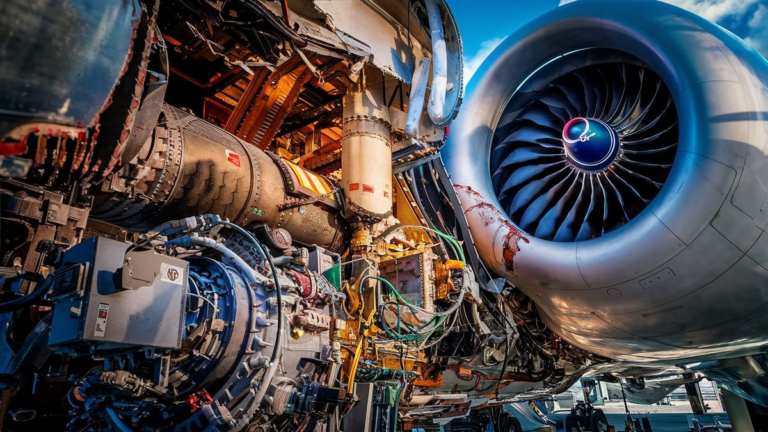When it comes to aviation safety, understanding the causes behind engine failure in aircraft like the Airbus A380 is paramount. Engine failure incidents can have severe implications, not only for the safety of passengers and crew but also for the reputation and operational integrity of airlines and aircraft manufacturers.
Understanding the Complexity of Airbus A380 Engines
The Airbus A380, with its massive size and capacity, is equipped with some of the most advanced jet engines in the world. The engines powering the A380, such as the Engine Alliance GP7200 and the Rolls-Royce Trent 900, are marvels of engineering, designed to provide exceptional performance while adhering to stringent safety standards.
Factors Contributing to Engine Failure
Engine failure in the Airbus A380 can result from a variety of factors, ranging from manufacturing defects to operational issues and external influences. Some of the primary causes of engine failure include:
- Mechanical Failures: Internal components within the engine may experience wear and tear over time, leading to mechanical failures.
- Bird Strikes: Collisions with birds during takeoff or landing can cause significant damage to engine components, resulting in failure.
- Foreign Object Debris (FOD): Foreign objects such as debris on the runway or taxiways can be ingested by the engine, causing damage and potentially leading to failure.
- Maintenance Issues: Inadequate maintenance practices or oversight can contribute to the degradation of engine performance and increase the likelihood of failure.
- Design Flaws: Despite rigorous testing and analysis, unforeseen design flaws or vulnerabilities may manifest under certain operational conditions, leading to engine failure.
Preventive Measures and Safety Protocols
Aviation authorities, aircraft manufacturers, and airlines continuously strive to enhance safety measures and mitigate the risks associated with engine failure. Some of the preventive measures and safety protocols implemented include:
- Rigorous Maintenance Programs: Airlines adhere to comprehensive maintenance schedules and procedures to ensure the optimal performance and integrity of aircraft engines.
- Enhanced Training and Education: Pilots and maintenance personnel receive extensive training on engine operations, troubleshooting, and emergency procedures to effectively manage potential failures.
- Technological Advancements: Ongoing advancements in engine technology and materials science contribute to the development of more robust and reliable aircraft engines.
- Real-Time Monitoring Systems: Aircraft are equipped with sophisticated monitoring systems that continuously assess engine health and performance parameters, enabling early detection of potential issues.
Engine failure in the Airbus A380 is a complex and multifaceted issue that demands a comprehensive understanding of engineering principles, operational dynamics, and safety protocols. By addressing the underlying causes of engine failure and implementing proactive measures, the aviation industry remains committed to ensuring the safety and reliability of air travel.
Effects of Engine Failure on Flight Operations
Engine failure incidents in aircraft like the Airbus A380 can have significant implications for flight operations and passenger safety. Some effects of engine failure include:
- Flight Diversion: In the event of engine failure, pilots may need to divert the aircraft to the nearest suitable airport for an emergency landing, disrupting scheduled flight routes.
- Loss of Power: Engine failure results in a loss of thrust, which can impact the aircraft’s ability to maintain altitude and speed, potentially necessitating emergency procedures.
- Increased Workload: Pilots and crew members face increased workload and stress during engine failure scenarios, requiring rapid decision-making and coordination to ensure the safety of passengers and crew.
- Passenger Anxiety: Engine failure incidents can cause anxiety and discomfort among passengers, necessitating clear communication and reassurance from the flight crew.
Frequently Asked Questions
| Question | Answer |
|---|---|
| What is the typical response to engine failure? | Typically, pilots follow established emergency procedures, which may involve attempting to restart the failed engine, initiating a diversion to the nearest suitable airport, and preparing passengers and crew for a potential emergency landing. |
| Can engine failure lead to catastrophic outcomes? | While engine failure is a serious issue, modern aircraft are designed with redundant systems and safety measures to mitigate the risks associated with engine failure. However, in rare cases, engine failure can contribute to more severe incidents, emphasizing the importance of robust safety protocols and training. |
| How often do engine failure incidents occur in commercial aviation? | Engine failure incidents are relatively rare in commercial aviation, thanks to stringent maintenance procedures, technological advancements, and safety regulations. However, when they do occur, they receive significant attention due to their potential impact on flight safety. |
See also:






